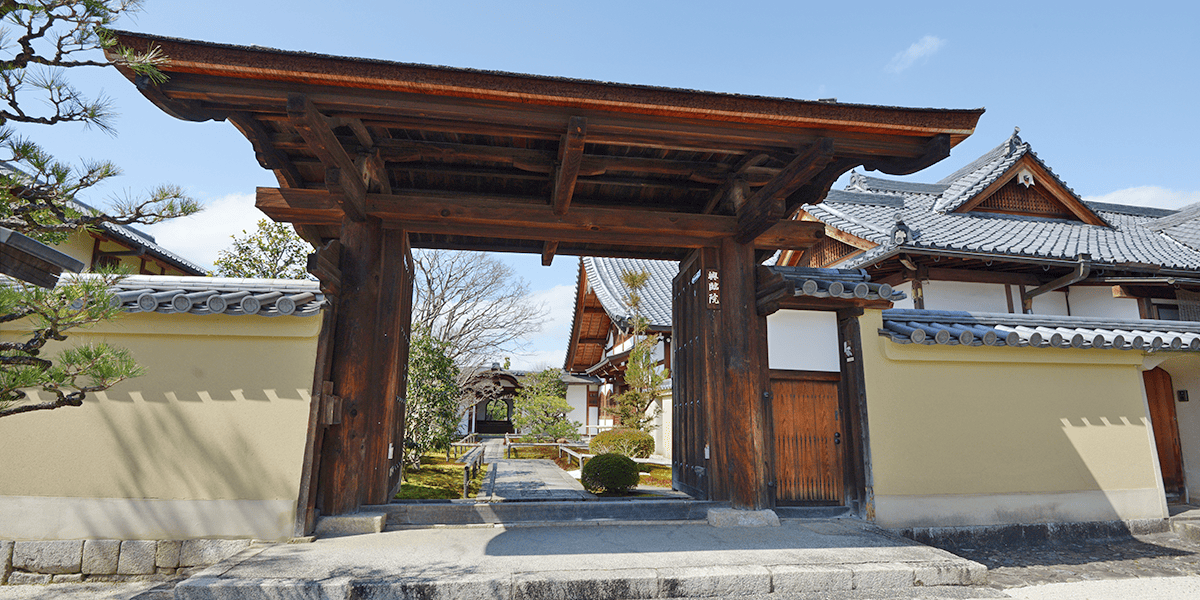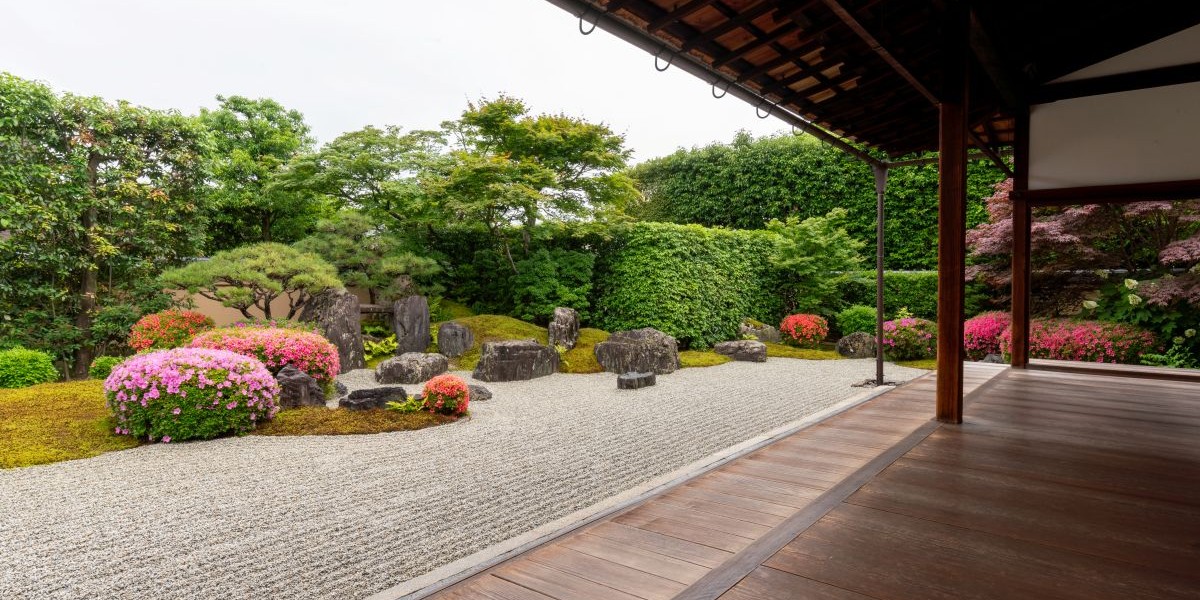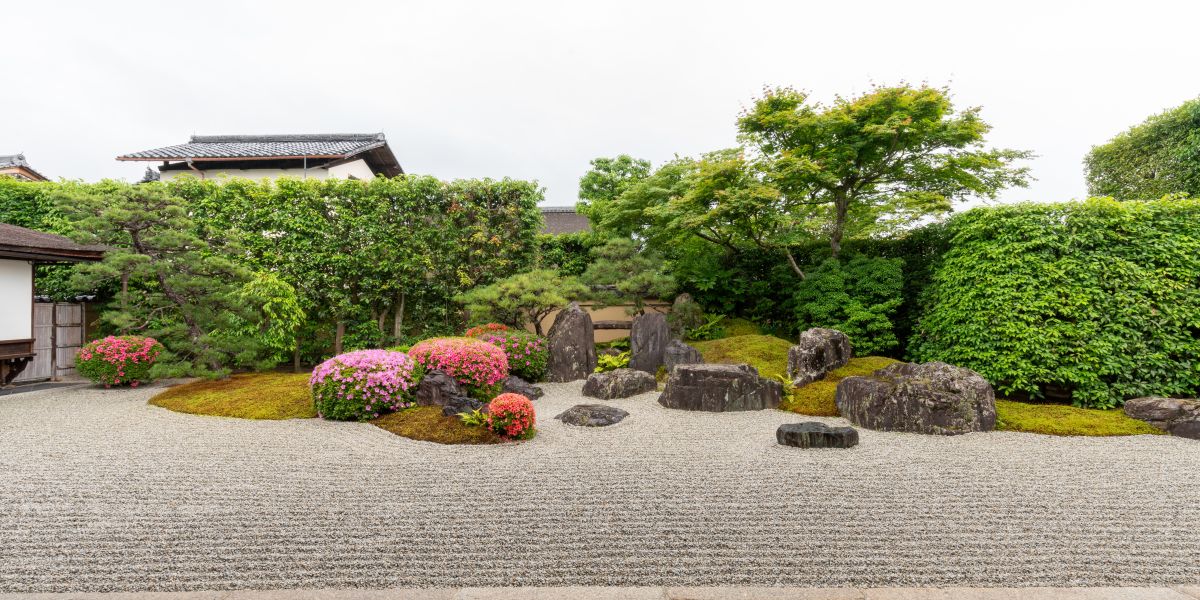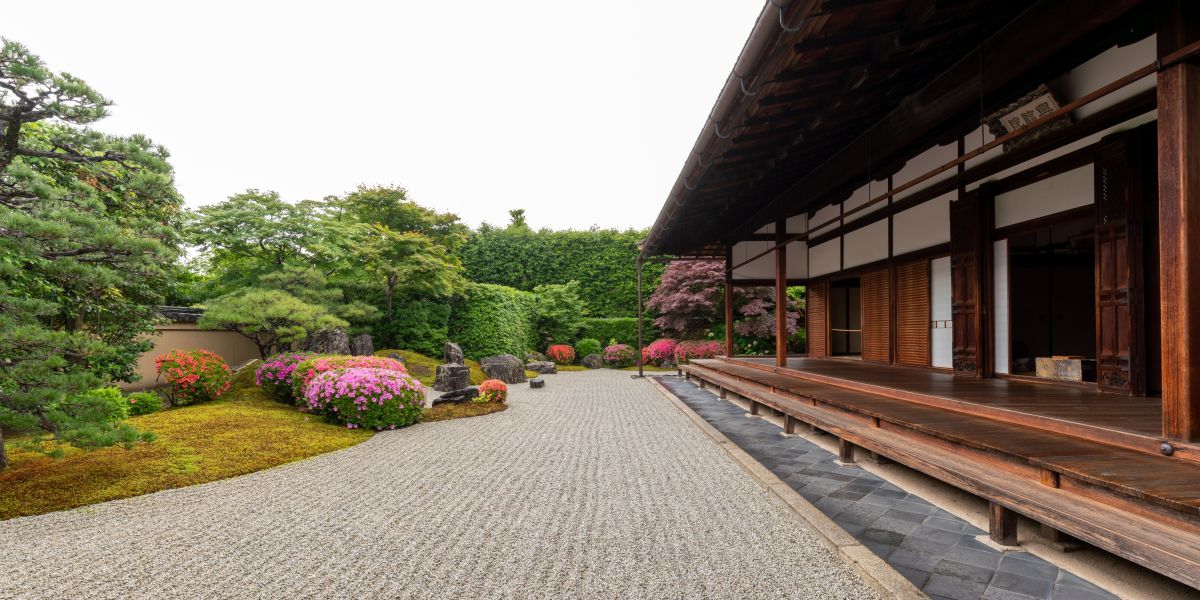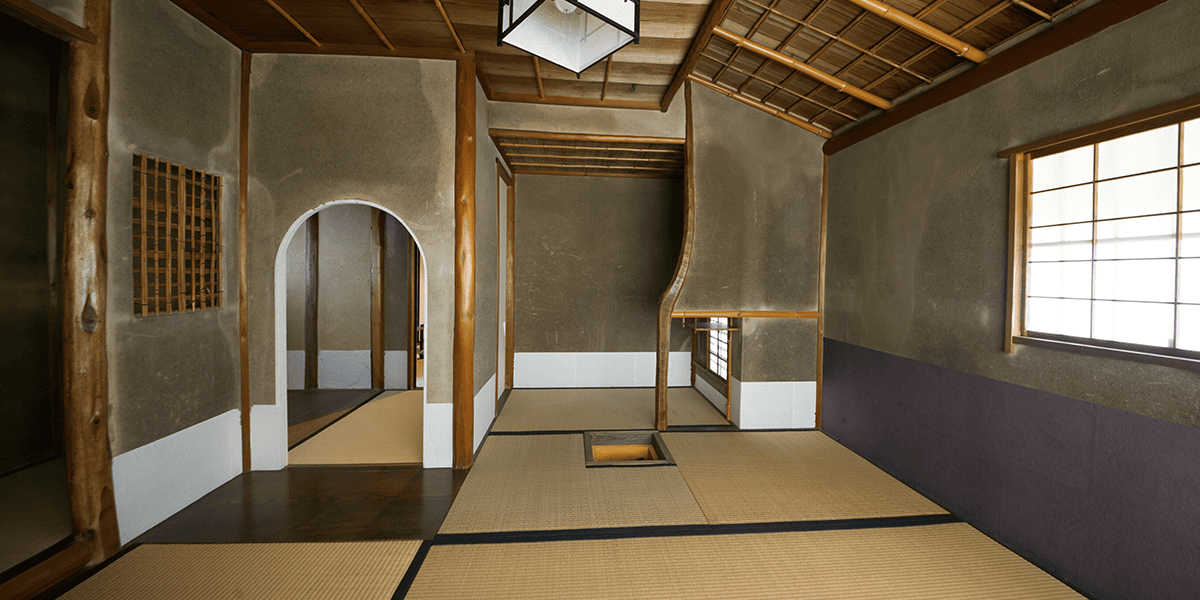Kohrin-in, a sub-temple of Daitoku-ji founded by Hatakeyama Yoshifusa, has strong ties to Sengoku-period warlords.
Highlights include the Front Gate and Main Hall, both designated Important Cultural Properties,
and the beautiful dry landscape garden. Enjoy the calm,
refined atmosphere of this 500-year-old example of Zen architecture.
Daitoku-ji Kohrin-in Temple
Highlights
HIGHLIGHTS
Front Gate
Visitors entering Kohrin-in are first welcomed by this historic main gate. Its appearance has remained unchanged since the temple was founded nearly 500 years ago, quietly conveying a sense of dignity and the weight of centuries gone by. It is also designated as an Important Cultural Property of Japan.
Hojo Garden
A "karesansui" dry garden that represents a vast natural landscape using only white sand and stones. This garden represents "Horai," the mythical utopia described in ancient Chinese philosophy. When the Main Hall was restored, the garden was beautifully recreated based on old documents by Kinsaku Nakane, the landscape designer who created the gardens of the Adachi Museum of Art, known as one of the most beautiful gardens in the world. Facing the quiet garden, you may feel a refreshing sense of calm, as if your heart has been purified.
Main Hall
This central building of Kohrin-in has been designated an Important Cultural Property of Japan. Unlike typical main halls built after the Edo period (1603-1868), this one is designed with a lower roof, a feature that gives the entire structure a sense of calm stability and lends it an elegant presence. We invite you to experience the beauty of traditional Japanese architecture and the serene, timeless atmosphere unique to a Zen temple.
Kankyo-tei Tearoom
This compact space was created for the enjoyment of the tea ceremony, consisting of a four-and-a-half tatami mat tearoom (about 7 square meters) and a preparation area called a "mizuya." Even in its simple design, this space embodies the depth and refined aesthetic of Japanese tradition. Bathed in the soft light filtering through the "shoji" paper sliding doors, you can experience a moment of heartfelt connection to Japan’s spiritual culture.
